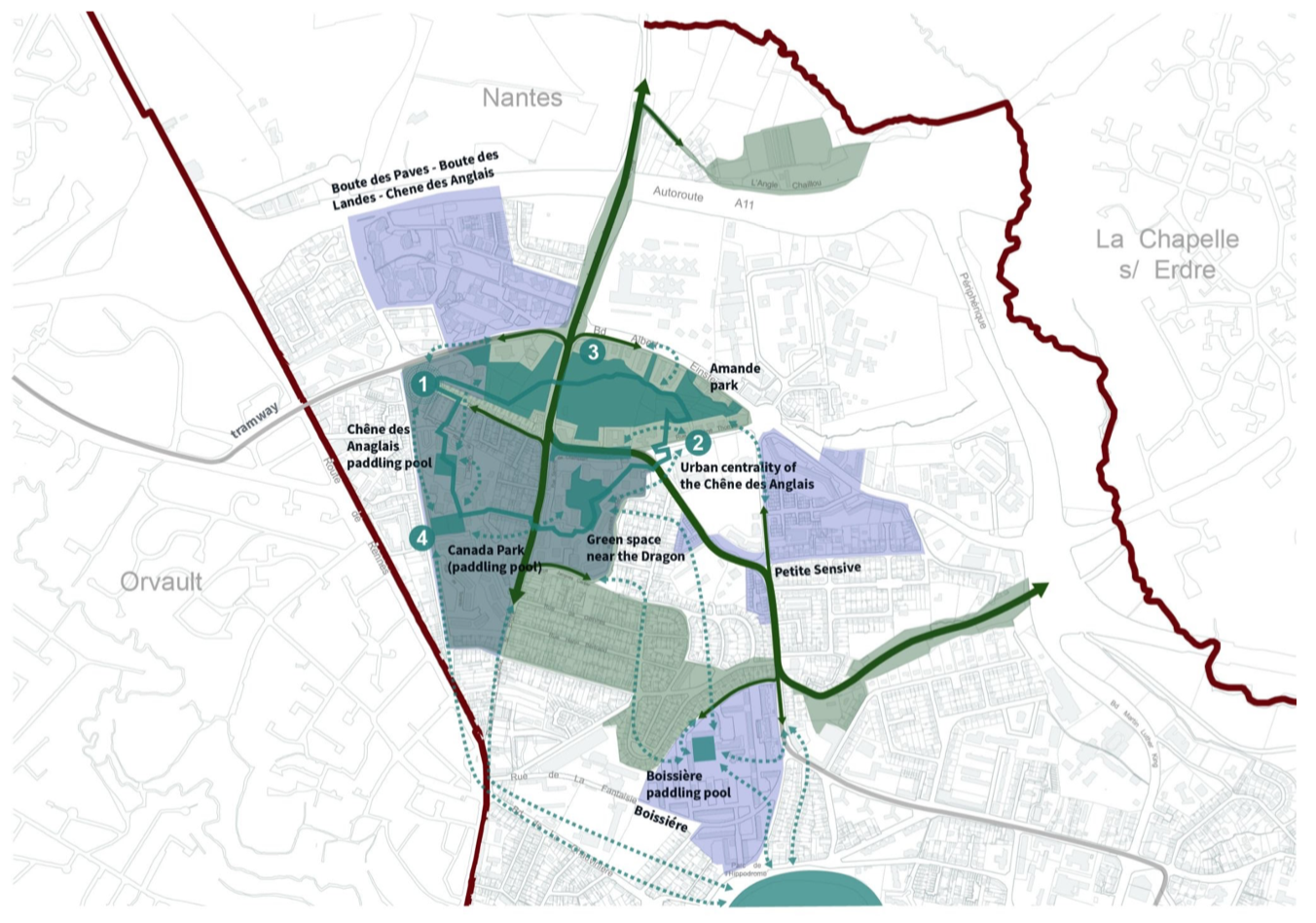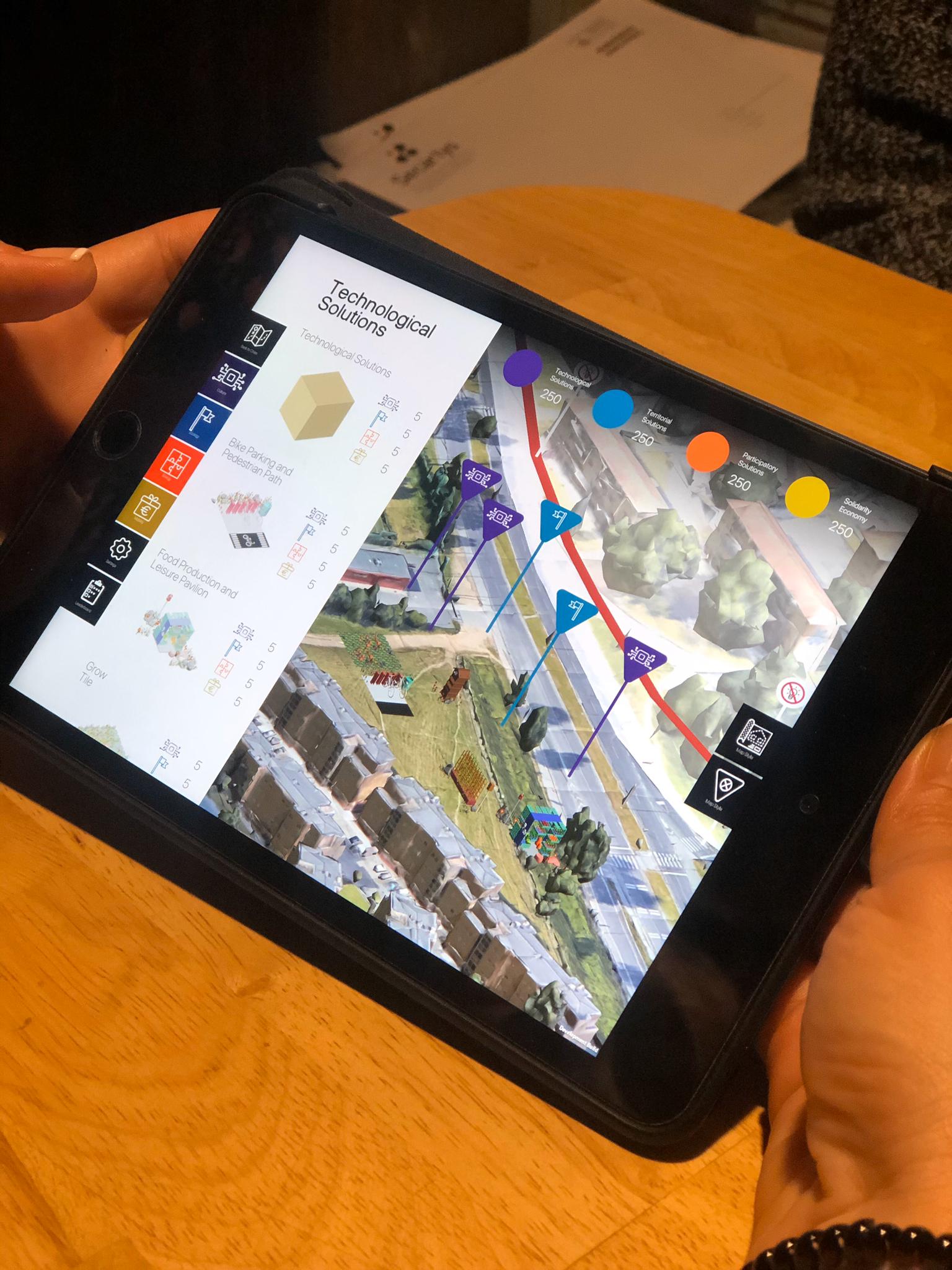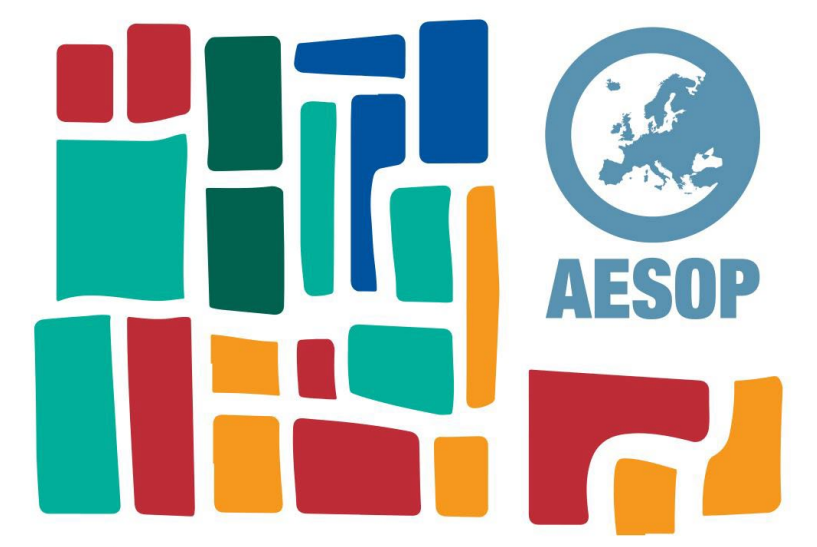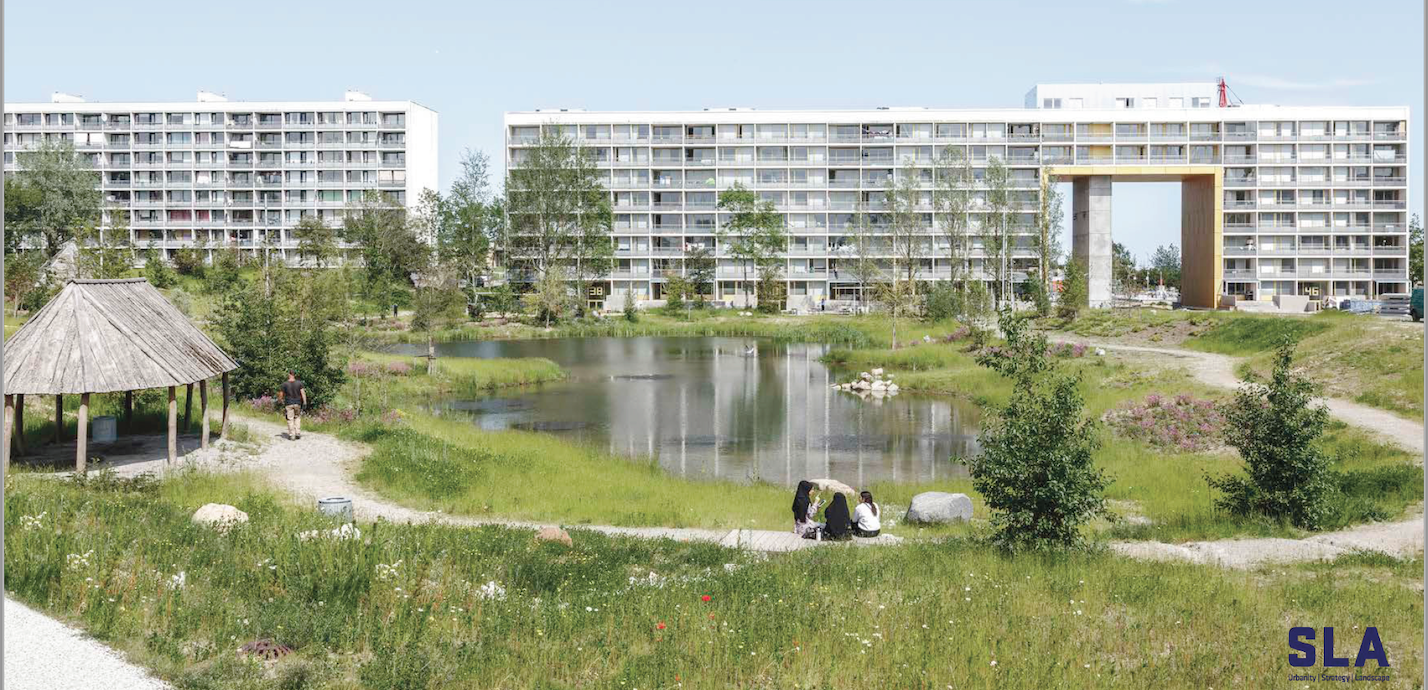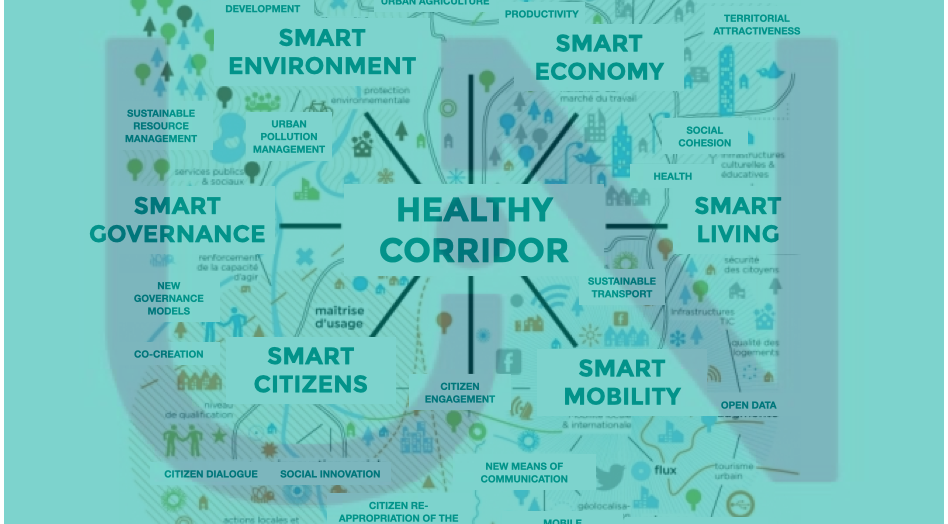In this latest publication as part of the URBiNAT project, Jules Sekedoua KOUADIO considers the notion of well-being and how it intersects with environmental quality, health, and technology. The study spotlights the role smartphones can play in enhancing our understanding of the spaces we inhabit. By leveraging the widespread accessibility and technical capabilities of these devices, Jules Sekedoua KOUADIO argues that they are not just tools of communication but can also serve as crucial instruments in participatory science. Through the observation and measurement of physical and geochemical variables, smartphones empower individuals to personally assess and contribute to the environmental data landscape. This paper emphasizes the importance of this approach in fostering a deeper connection between people and their environments, encouraging community involvement, and promoting a collective movement towards better urban well-being.
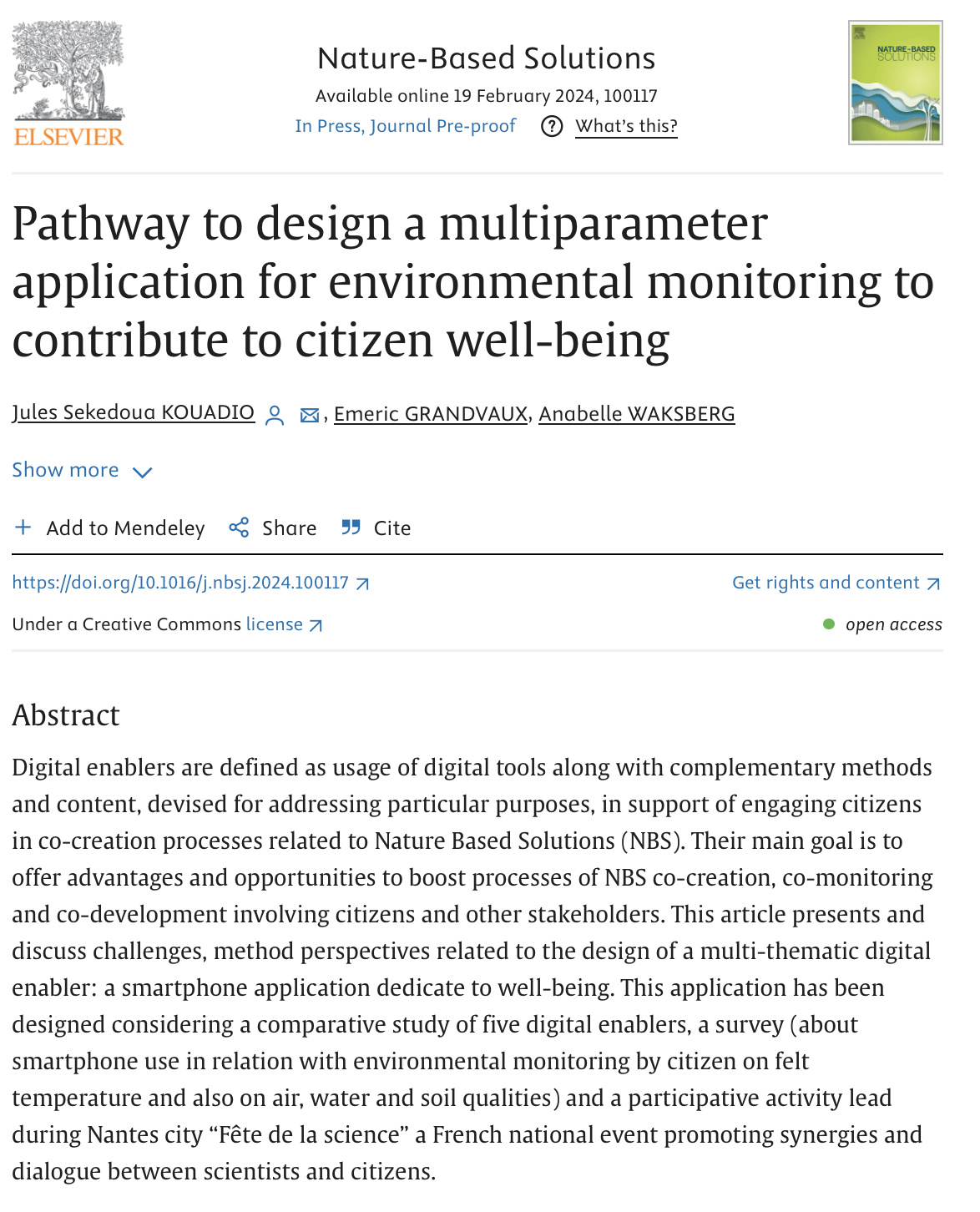
Image: URBiNAT thumbnail image of publication cover
Abstract
Digital enablers are defined as usage of digital tools along with complementary methods and content, devised for addressing particular purposes, in support of engaging citizens in co-creation processes related to Nature Based Solutions (NBS). Their main goal is to offer advantages and opportunities to boost processes of NBS co-creation, co-monitoring and co-development involving citizens and other stakeholders. This article presents and discuss challenges, method perspectives related to the design of a multi-thematic digital enabler: a smartphone application dedicate to well-being. This application has been designed considering a comparative study of five digital enablers, a survey (about smartphone use in relation with environmental monitoring by citizen on felt temperature and also on air, water and soil qualities) and a participative activity lead during Nantes city “Fête de la science” a French national event promoting synergies and dialogue between scientists and citizens.
Introduction
The notion of well-being encompasses various dimensions, the factors of which vary according to individuals, socio-professional categories, and communities of interest. The quality of the environment occupies a significant place among these factors, especially when directly associated with health-related issues. In this article, we focus on the smartphone as a tool that can enable individuals to assess the quality of their environment, particularly through the observation and measurement of physical and geochemical variables that contribute to their well-being. Given its ease of use, low cost, and, most importantly, its compatibility with the concept of ‘participatory science,’ the smartphone offers new perspectives for acquiring environmental data.


